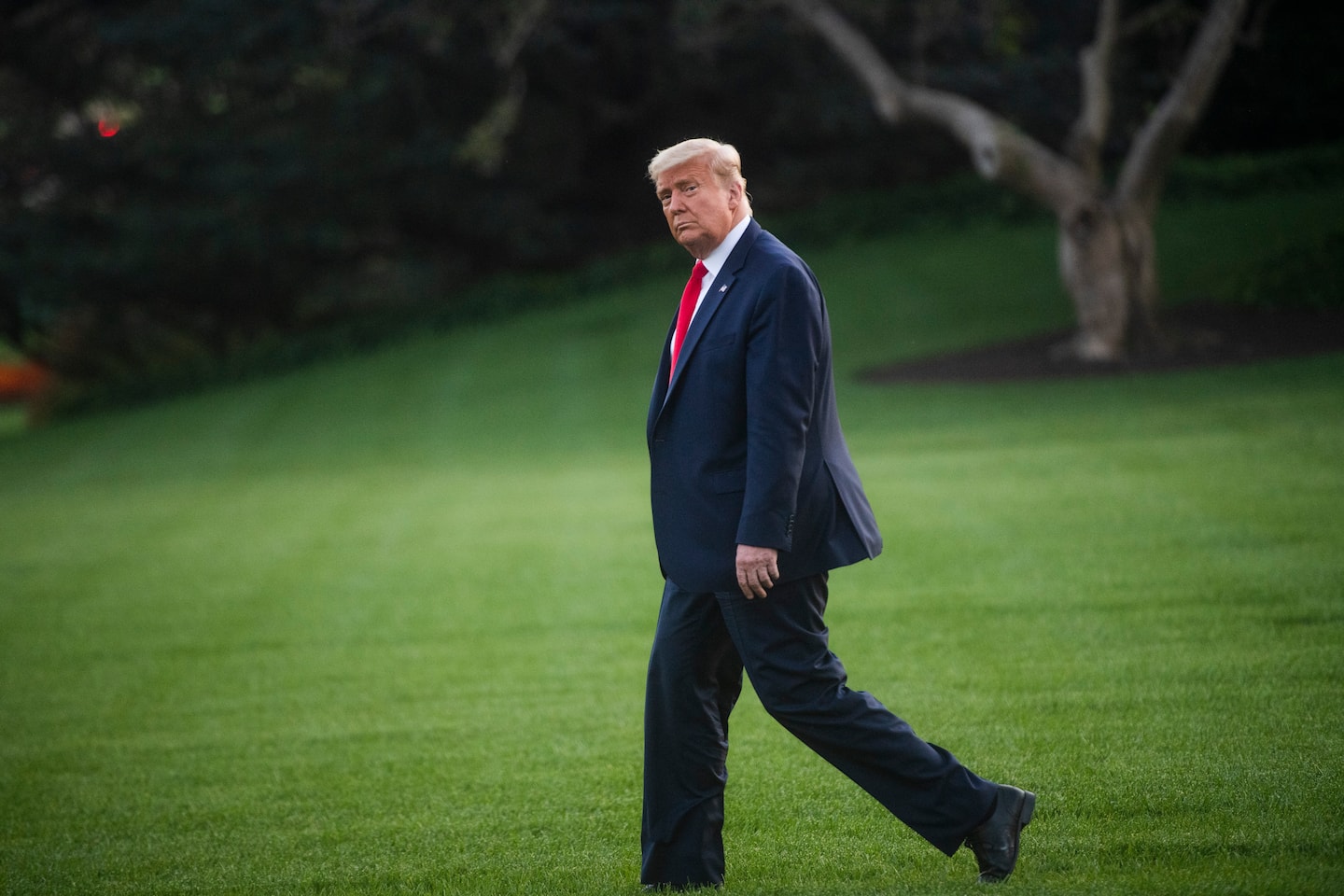How Trump played a good hand poorly

Neither appears to be nearly enough to save Trump’s presidency.
In recent days and weeks, Trump has turned to touting a supposed V-shaped economic recovery amid the coronavirus pandemic, while also citing polls suggesting that Americans feel they are better off than before he became president.
“Fifty-six percent of the people in a pandemic are better off now than they were under the Obama-Biden,” Trump said last week. “And it’s the best number, I think they said, ever recorded — and we’re in a pandemic. It’s not anybody’s fault, but we’re in a pandemic, 56 percent.”
“The Gallup Poll has just come out with the incredible finding that 56% of you say that you are better off today, during a pandemic, than you were four years ago (OBiden),” Trump tweeted earlier this month. “Highest number on record! Pretty amazing!”
It’s doubly amazing, though, when you consider that Trump is a distinct underdog right now. And some polls this week showed why.
A New York Times-Siena College poll echoed the Gallup poll to some extent, with 49 percent of Americans saying they are better off than four years ago, while just 32 percent said they are worse off. By the logic of the man who initially made the question famous in 1980, Ronald Reagan, this would suggest that Americans will vote for Trump because they are happy with their relative life status.
But then the Times-Siena poll asked people a slightly different version of the question: Setting aside how people personally felt about their situation, it asked, “Do you think America is better off or worse off than it was four years ago?”
On this question, the verdict was distinctly different. Just 39 percent said the country was better off than four years ago, while 55 percent said it was worse off. When it came to whether things were worse than four years ago, the number jumped from 32 percent for people’s personal situations to 55 percent for the country’s situation — increasing by at least 16 points for every demographic except Republicans. Positive views overall dropped from 49 percent to 39 percent.
The split is similar in other recent polling.
In a USA Today-Suffolk University poll released Wednesday, for instance, 51 percent of Pennsylvania voters said they were better off compared with four years ago, while 30 percent said they were worse off. But voters said by an even larger 57-to-32 margin that the country was on the wrong track.
Similarly, a Financial Times-Peterson Foundation poll shows that, when you invoke Trump by name in the “better off” question — asking about how things have changed since he took office — voters are split 32 percent to 32 percent.
The same split decision holds in reviews of Trump’s economic record. While this was clearly an asset for him for much of his presidency — and appeared to be his chief concern early in the coronavirus pandemic — most recent polls show a nearly equal split on his handling of the economy and that it’s an issue on which Democratic nominee Joe Biden has drawn about even.
Even in the polls in which Trump’s economic performance has majority support, including this month’s Washington Post-ABC News poll (54 percent approval on the economy), Trump’s overall approval lags behind (45 percent), and he still trails Biden (by 12 points).
If you had said at the start of the election that a president like Trump would have close to a majority — or even a majority, period — on both the economy and the are-you-better-off question, the conventional wisdom would have held that he would be a strong favorite for reelection.
The fact that he’s decidedly far from that is merely the latest evidence that Trump may have squandered what should have been a winning hand in his reelection campaign, if he could just have avoided all the noise. And it provides the latest evidence that perhaps we should readjust our political assumptions in the Trump era.






